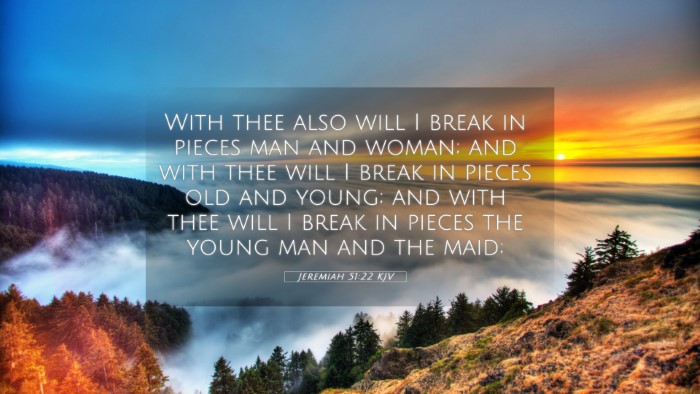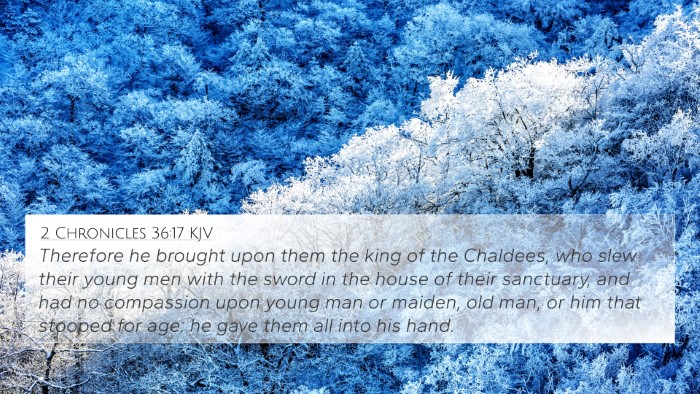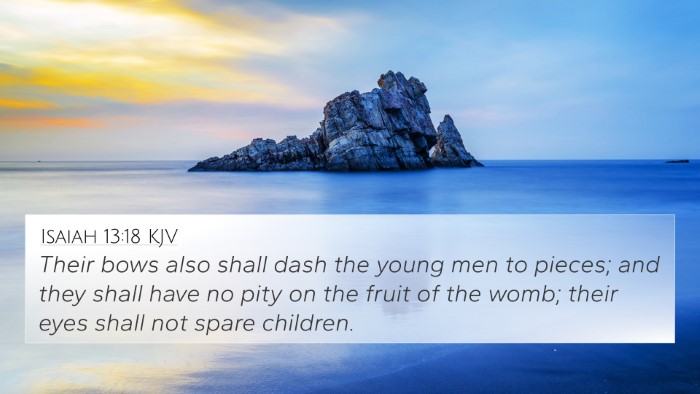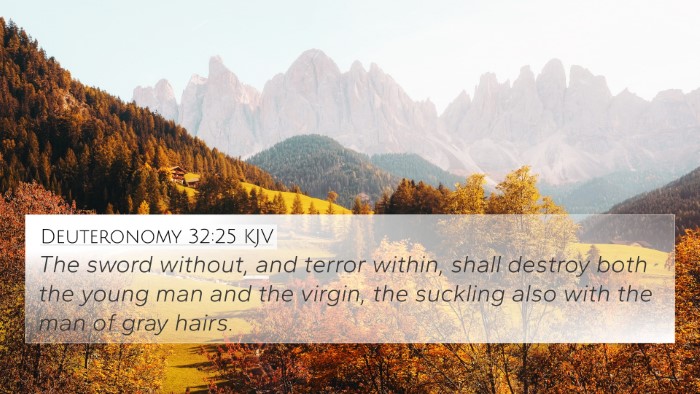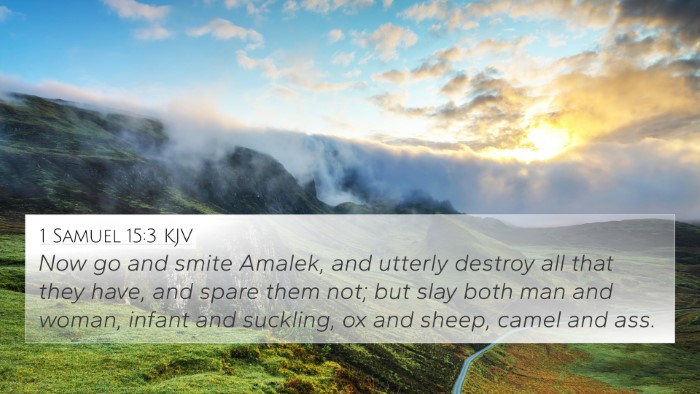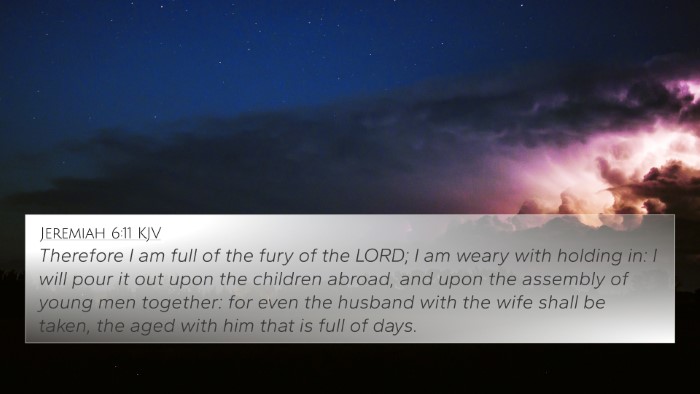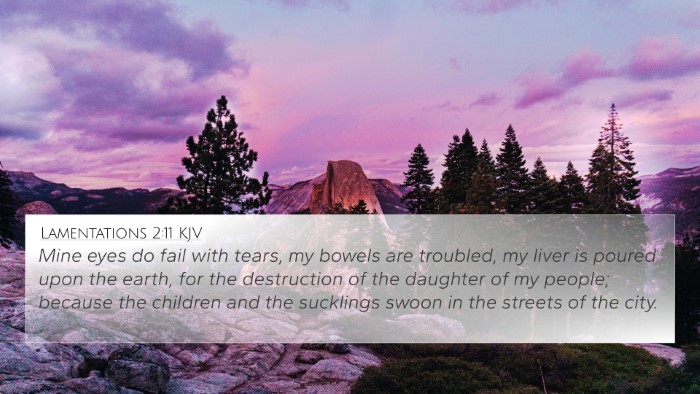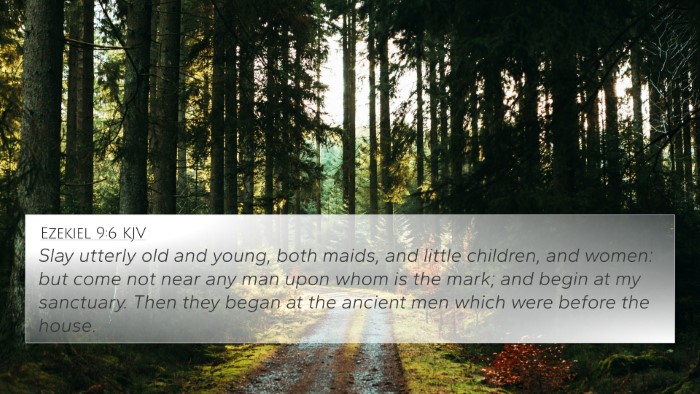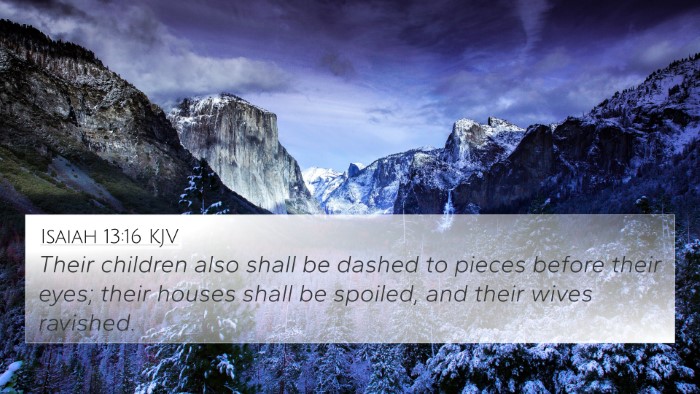Understanding Jeremiah 51:22
Jeremiah 51:22 states: "With thee also will I break in pieces man and woman; and with thee will I break in pieces old and young; and with thee will I break in pieces the shepherd and his flock."
Significance of the Verse
This verse falls within a prophetic declaration regarding the impending judgment against Babylon. The scope of destruction envisaged here encompasses all societal groups—men and women, old and young, shepherds and their flocks—indicating comprehensive judgment.
Insights from Commentaries
Matthew Henry's Commentary
Henry emphasizes the totality of God's judgment as described in this verse. He points out that the breaking in pieces of every demographic signifies the indiscriminate nature of divine retribution against sin. It serves as a warning of God's powerful authority over nations and individuals alike.
Albert Barnes' Notes on the Bible
Barnes highlights that the verse illustrates that no one is exempt from divine judgment. The inclusion of both societal leaders (the shepherds) and common people signifies that God's justice does not favor status but operates on moral and spiritual grounds. Barnes connects this to the overarching theme of justice in the prophetic literature.
Adam Clarke's Commentary
Clarke elaborates on the metaphor of 'breaking in pieces' as an illustration of God's power to judge and dismantle the very structure of society. He indicates that God's judgment towards Babylon is not just about physical destruction but also about the spiritual ramifications of turning away from God. Clarke also connects this phrase to other biblical imagery of divine wrath.
Bible Verse Cross-References
- Isaiah 13:16 - This verse also speaks to the devastation that will come upon Babylon and its inhabitants.
- Ezekiel 39:10 - Describes the desolation of a land after punishment by God, correlating with the themes in Jeremiah.
- Micah 5:8-9 - Reflects on the destruction of nations that oppose God, akin to the destruction predicted in Jeremiah.
- Revelation 14:8 - Mentions Babylon's fall, showing a connection with Jeremiah's prophetic vision.
- Jeremiah 50:21-22 - Contextualizes the judgment against Babylon further in the same prophetic narrative.
- Zechariah 10:3 - Speaks of the shepherds being punished, paralleling the themes of leadership failing in responsibility.
- Isaiah 47:1-15 - Proclaims the humiliation of Babylon and serves as a fitting cross-reference.
- Psalm 37:36 - Offers a broader look at God’s judgment on the wicked.
- Job 34:20 - Discusses the suddenness of judgment from God, echoing the warning in Jeremiah.
- Matthew 24:21-22 - Reflects the theme of tribulation and judgment aligning with the judgments in Old Testament prophecies.
Connecting Themes and Interpretations
The comprehensive nature of punishment in Jeremiah 51:22 emphasizes a critical theological theme: God's impartial justice. This resonates throughout scripture where divine justice necessitates accountability regardless of societal standing. The cross-references drawn here reveal the consistent thread of judgment against nations turning away from God.
Tools for Bible cross-referencing can enhance understanding by linking disparate texts that discuss similar themes of judgment, punishment, and God’s sovereign authority—showcasing an inter-Biblical dialogue that enriches theological study.
Utilizing a Bible concordance or a Bible cross-reference guide can assist the reader in finding related passages, offering deeper insight into how prophetic literature ties together with teachings found in the New Testament, and revealing how past prophecies inform present beliefs.
Conclusion
This verse, Jeremiah 51:22, serves as a profound reminder of God’s sovereignty and the seriousness of sin. By engaging with comparative Bible verse analysis, scholars and lay readers alike can explore the connections between scripture, nurturing a richer understanding of the Bible's message.

